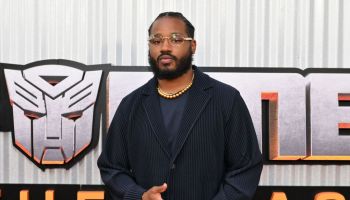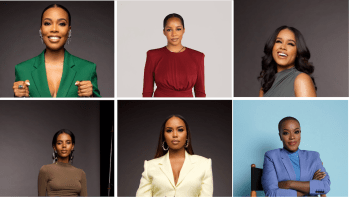The Rev. Boniface Hardin built bridges to link races and cultures in Indianapolis during his more than four-decade as a leader in the black community. The civil rights activist, Catholic priest and founder of what remains the area’s only black-majority college, died Saturday. He was 78.
Well-known for his white hair — people said he looked like Frederick Douglass, and he took that to heart, often performing a Douglass monologue for his students — Hardin leaves behind a school that has grown to serve more than 1,000 students.
He started in 1977 with just seven. It was then and is now aimed at so-called “adult learners,” people who hadn’t been to school in a long time.
It also is aimed at serving minorities in low-income neighborhoods. Hardin named it, like the community center he created before it, after the Rev. Martin Luther King Jr., and St. Martin de Porres, a biracial Catholic saint.
Race and civil rights were a focus of Hardin’s since his upbringing in Louisville, Ky., where he was born in 1933. He recalled in a 1988 interview with The Indianapolis Star trying to buy a soft drink at a local drugstore and being turned away because he was black.
Hardin became one of the first African-Americans to graduate from the St. Meinrad School of Theology in Southern Indiana. He was ordained in 1959.
He moved to Indianapolis in 1965 to become an associate pastor at Holy Angels Church.
Hardin delved into local issues, publicly questioning why I-65 was going to be placed in poorer neighborhoods Downtown, and pushing for the Indianapolis Police Department to promote black officers.
His words caused friction with some fellow priests.
“Priests were supposed to be in the pulpit, not out in the street wearing a dashiki and sporting a big afro,” he told The Star in 2007.
In 1969, he founded the Martin Center, a community center at 35th Street and College Avenue that offered educational programs and tried to help residents deal with sickle cell anemia. Hardin saw the center as his way to “change the world.”
“I was going to get rid of racism,” he said in the 2007 interview. “I had it all worked out on paper.”
The Martin Center turned into Martin Center College in 1977. The plan, from the start, was to help older adults get degrees.
Hardin focused on making the school as internationally focused as possible, boasting that the school had students from Afghanistan, Uganda, Saudi Arabia and elsewhere. He spoke more than a dozen languages, and kept both a Bible and a Quran at his desk.
Friends remember Hardin as bubbly, with a strong personality.
“I think you’d be hard-pressed to find anyone who didn’t like him,” said Joe Slash, president and CEO of the Indianapolis Urban League.
His hair became a signature characteristic, as did the comparisons to Frederick Douglass.
“It may have started as a joke,” WTLC-AM radio host Amos Brown said, “but it ended up as a badge of honor, as a sign of respect.”
Derek King, a nephew of King who has worked at Martin University since 2001, said Hardin was “an intellectual practical joker.”
He’d ask pointed questions about a subject, and when King gave a satisfactory answer, “he’d laugh and say, ‘I knew you already knew it,’ ” King said.
He remained the school’s president for three decades until 2007 — well after his 2002 prostate cancer diagnosis.
“It’s best to pass the torch while it’s still lit,” he told The Star in 2007.
His health had declined recently, but as Brown recalled, he still managed to make it to a Martin Luther King Day celebration at the Madame Walker Theatre Center in January.
He was in a wheelchair, and he was clearly frail, Brown said. But his handshake was strong, as was the look in his eyes. “His spirit was as strong.”
source–indystar.com















